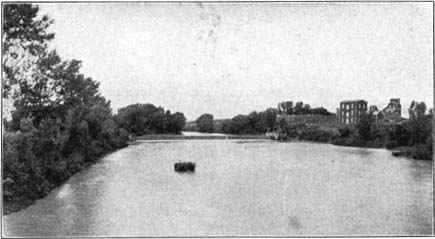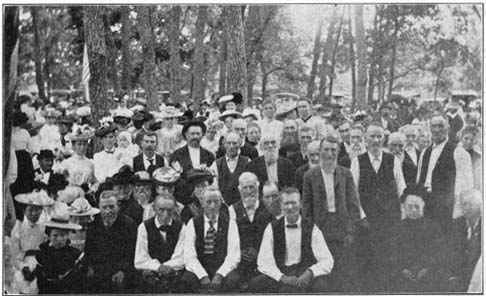|
126
|
SEMI-CENTENNIAL HISTORY OF
NEBRASKA
|
|
farms and ranches. Whichever of these causes was
the dominant one, the result was the election of the
entire republican state and electoral tickets by a
plurality of about 8,000. For governor W. A. Poynter,
fusion, received 113,018 votes, C. H. Dietrich,
republican, 113,879, L. O. Jones, prohibition, 4,315,
Taylor Flick, midroad populist, 1,095. The legislature
again was republican. By the death of Senator Hayward
there were two United States senators to be chosen at
this session, and an intensely bitter factional struggle
in the republican party ensued ending only on the last
day of the session by the withdrawal of the two leading
republican candidates, D. E. Thompson of Lincoln, and
Edward Rosewater, of Omaha, and the selection of Governor
C. H. Dietrich, of Hastings and J. H. Millard of Omaha,
as senators. This legislature abolished the state board
of transportation,--thus ending a twenty-five years'
struggle to regulate railway freight rates in the state
by an abandonment of the issue.

Mill and Dam Across Republican River at Orleans.
(Photo. by C. E. Condra, Department of Geology, U. of
N.)
It enacted an
inheritance tax law, an act for the relief of settlers
upon Boyd county school land, and it created a state game
warden, a state library commission, and a state board of
charities and corrections.
Lieutenant Governor
Savage became governor upon the election of Governor
Deitrich to the office of United States Senator. His
action in pardoning ex-State Treasurer Bartley from the
penitentiary awakened a storm of protest in his own party
as well as elsewhere, and virtually forced him out of the
race as a candidate before his party's convention in
1902. After a very animated contest the republicans
nominated John H. Mickey, of Polk county, as their
candidate. The democratic and the peoples independent
state conventions met at the same time in the city of
Grand Island, and were deadlocked all night upon the
question of which should name the candidate for governor.
At daylight the populist convention accepted W. H.
Thompson, of Grand Island, the democratic nominee. The
campaign turned
|





